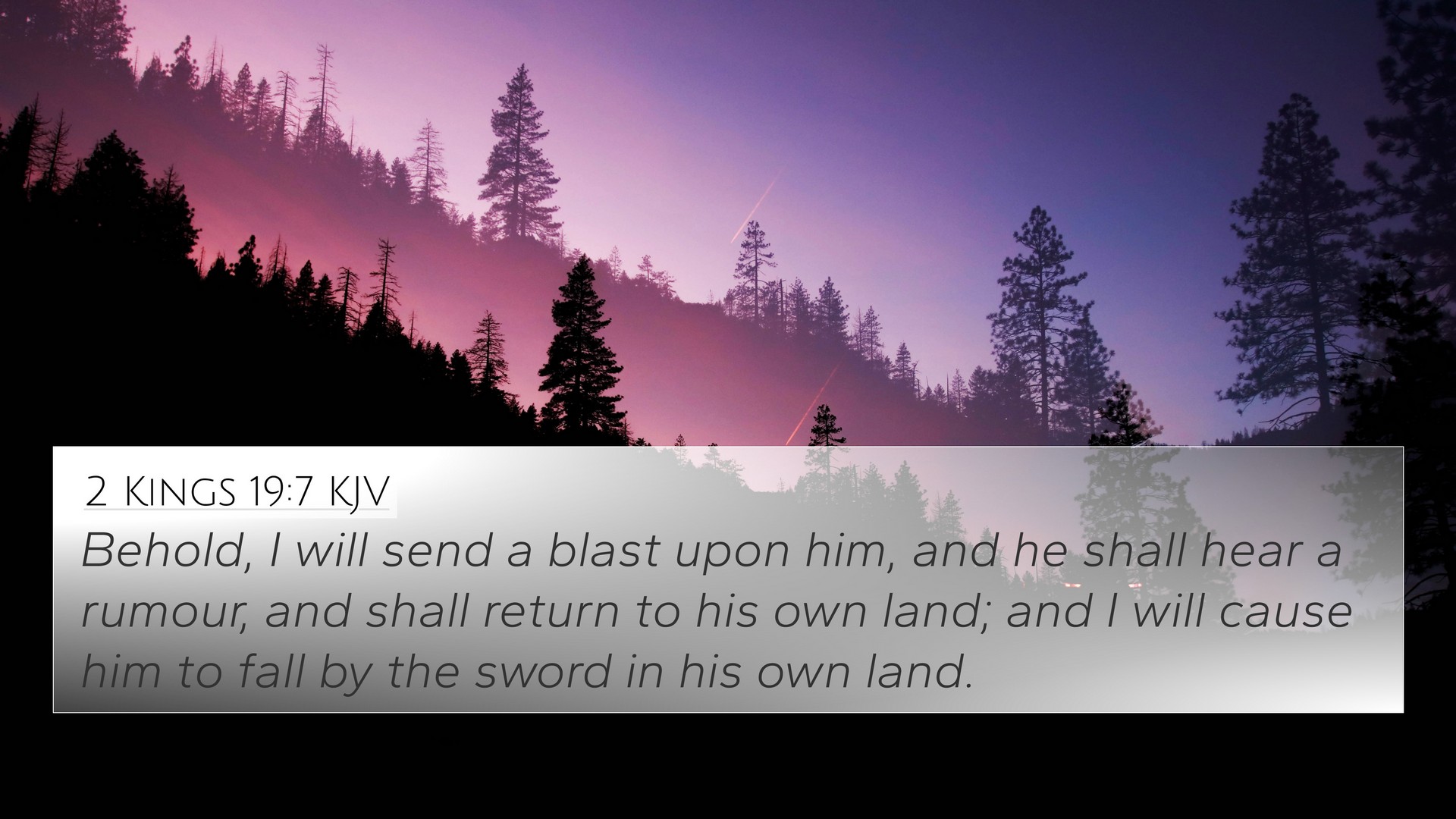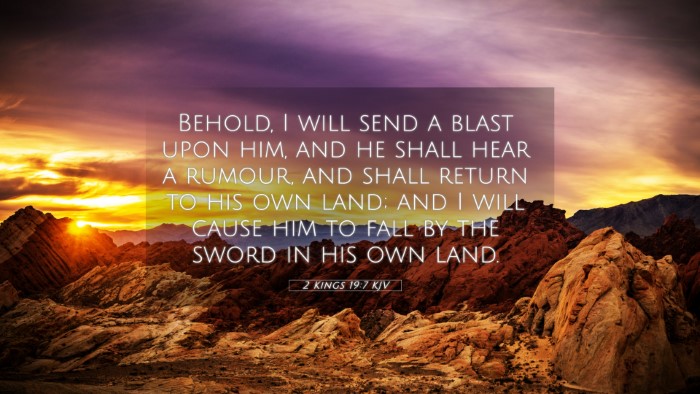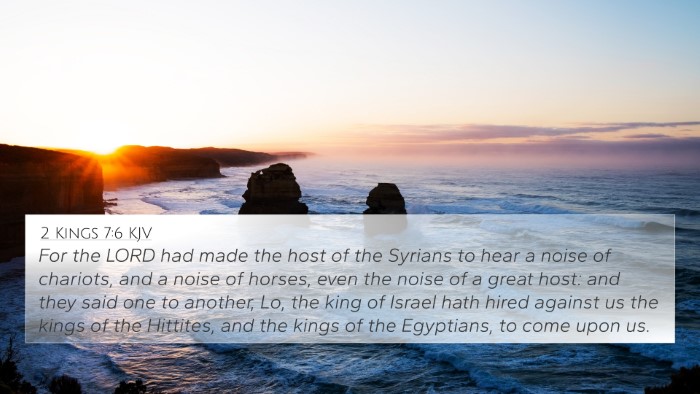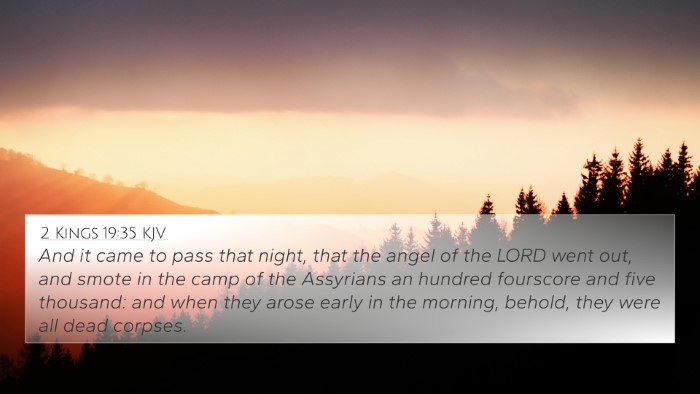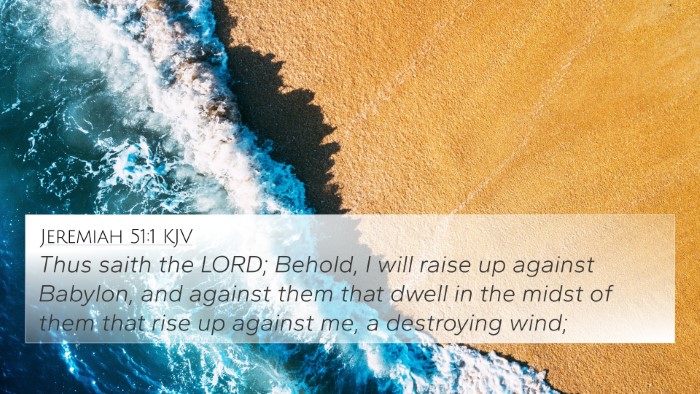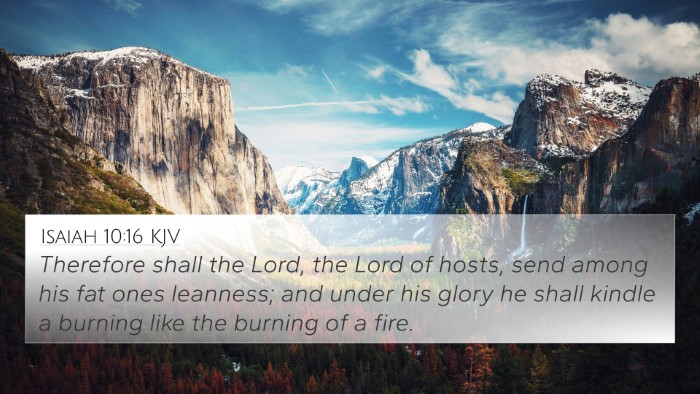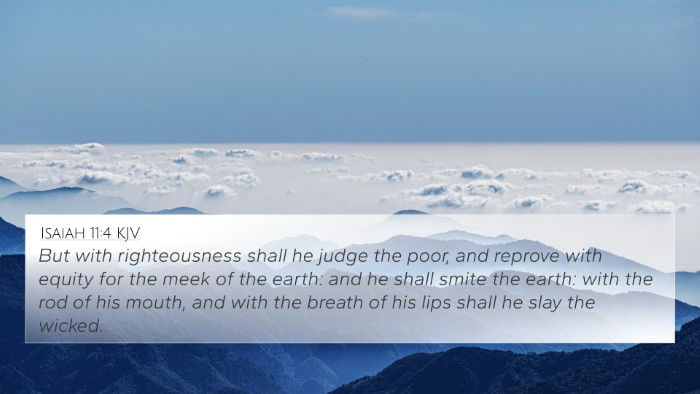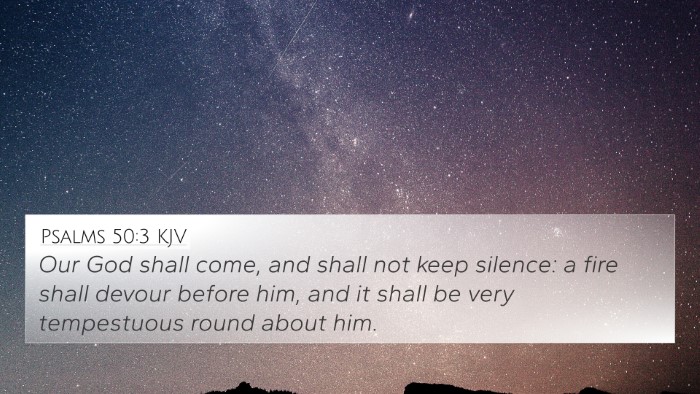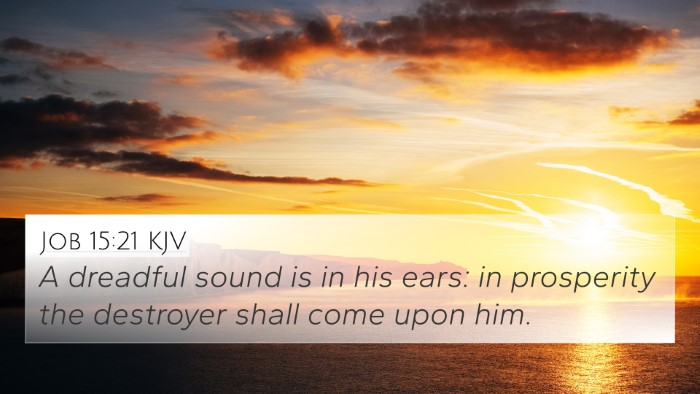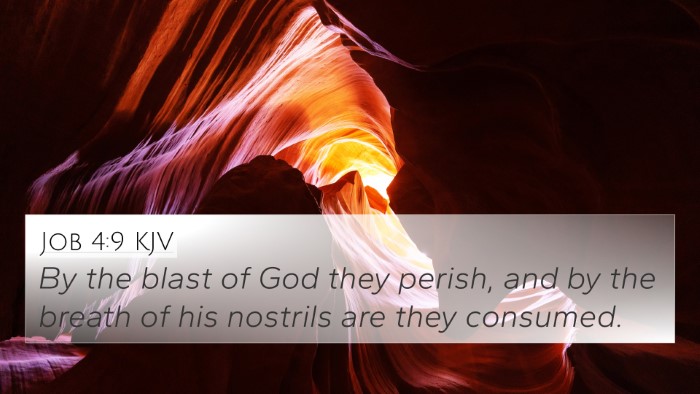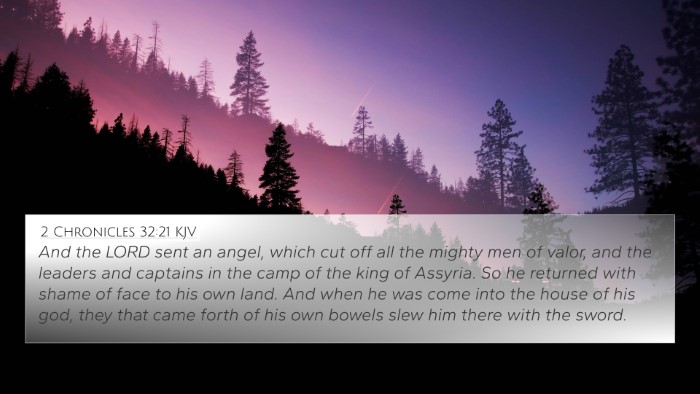Bible Verse Meaning: 2 Kings 19:7
The verse 2 Kings 19:7 states:
"Behold, I will put a spirit in him, and he shall hear a rumor and return to his own land; and I will cause him to fall by the sword in his own land."
Summary of Meaning
This verse unfolds during the time when King Hezekiah faced the threat of Assyrian invasion under King Sennacherib. It reveals God's plan to intervene and protect His people by instilling fear in the heart of Sennacherib. This assurance highlights God's sovereignty, illustrating how He can use divine intervention to alter the course of historical events.
Insights from Public Domain Commentaries
-
Matthew Henry:
Henry emphasizes the prophetic assurance given to Hezekiah. He points out that God's control over nations is evident, even in the midst of seemingly overwhelming threats. Henry notes that the 'spirit' refers to a disposition or mental state that God influences to lead Sennacherib to retreat.
-
Albert Barnes:
Barnes highlights the dual nature of God's promise. He indicates that God not only guarantees the king's defeat but also the return of Sennacherib to his homeland, which signifies God's command over the situation and His ability to orchestrate simultaneous events. This serves as a demonstration of God's overarching authority.
-
Adam Clarke:
Clarke provides context regarding the 'spirit' mentioned in this verse, explaining it as a metaphorical force that can make one hear rumors or be influenced by fear. He underlines the nature of divine intervention in human affairs, reiterating that God can convert threats into opportunities for deliverance.
Bible Verse Cross-References
2 Kings 19:7 connects with several other scriptures, showcasing the interconnected nature of biblical texts:
- Isaiah 37:7: "Behold, I will put a spirit in him, and he shall hear a rumor and return to his own land..." - This passage directly parallels the promise made to Hezekiah.
- Psalms 73:18: "Surely thou didst set them in slippery places: thou castedst them down into destruction." - Illustrates God's control over the fate of the wicked.
- Proverbs 21:1: "The king's heart is in the hand of the Lord, as the rivers of water: he turneth it whithersoever he will." - Affirms God's ability to influence rulers.
- Jeremiah 25:29: "For, lo, I begin to bring evil on the city which is called by my name..." - Reflects God's active role in judgment and intervention.
- Isaiah 10:12: "Wherefore it shall come to pass, that when the Lord hath performed his whole work upon mount Zion and on Jerusalem, I will punish the fruit of the stout heart of the king of Assyria..." - Shows God's sovereign justice over nations, including Assyria.
- 1 Kings 19:15-17: God's instructions to Elijah regarding judgment - connects with God’s providential governance over nations.
- Acts 4:27-28: "For of a truth against thy holy child Jesus..." - Relates to divine orchestration of events in historical context, drawing lines between Old Testament events and New Testament fulfillment.
Understanding Through Cross-Referencing
This verse illustrates the principle of scriptural cross-referencing and how themes relate across the Bible. Evaluating 2 Kings 19:7 alongside these references offers deeper insights into God's sovereignty, the use of fear, and prophetic fulfillment.
Tools for Bible Cross-Referencing
Utilizing Bible concordance and Bible cross-reference guides can enhance the study experience. Some effective tools include:
- Digital Bible Apps with cross-referencing features.
- Printed concordances to identify connections between verses.
- Online Bible study platforms for thematic explorations.
Conclusion
In 2 Kings 19:7, the profound message of God’s timely intervention and control emerges. By engaging in comparative Bible verse analysis and recognizing bible verse parallels, believers can deepen their understanding of the scriptural narrative and God's enduring promise to protect His people. Whether through Bible chain references or thematic connections, God's Word remains consistent and reliable through ages.
